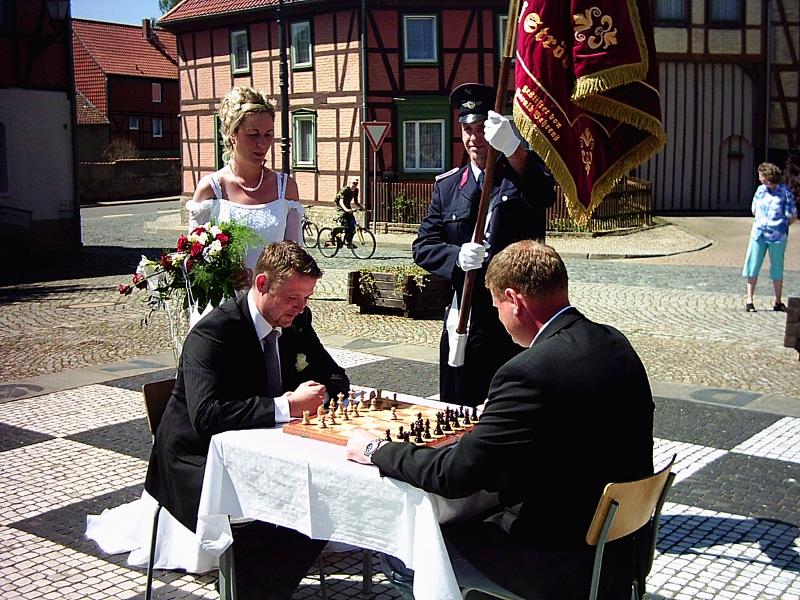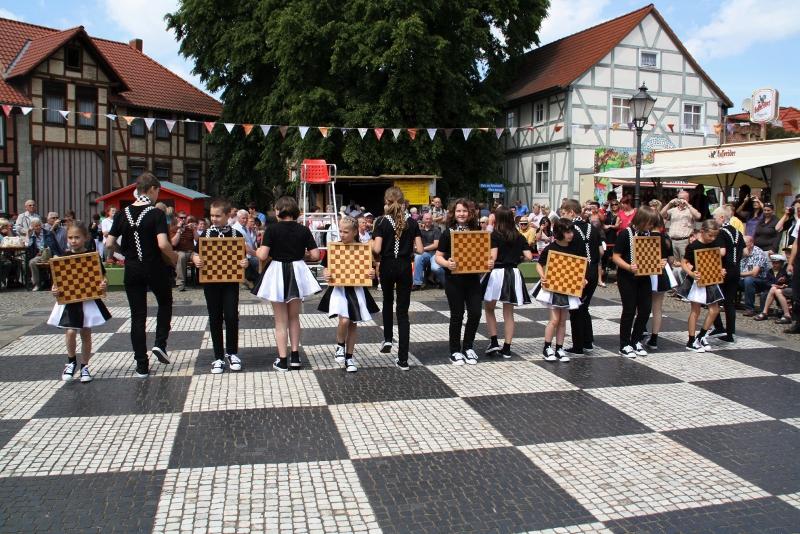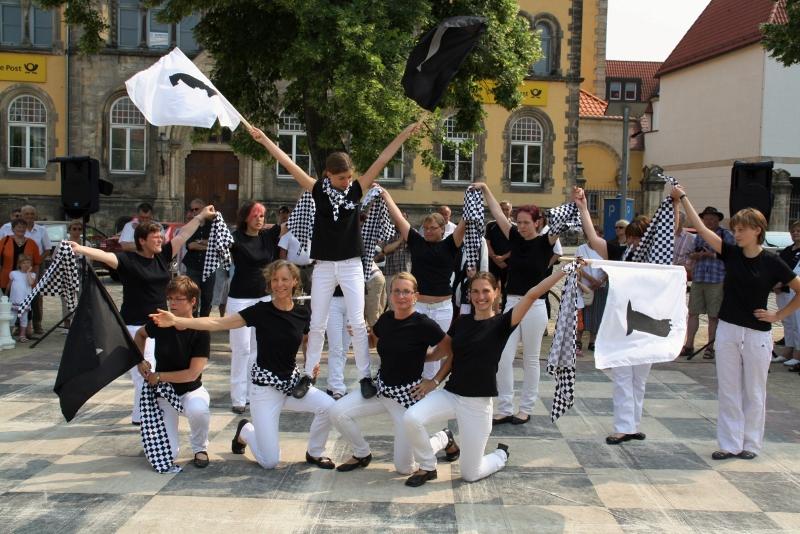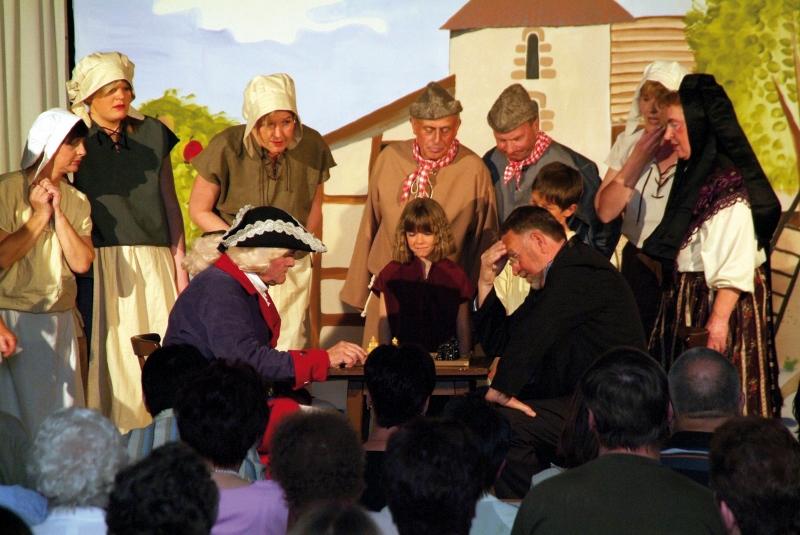Nationwide Inventory of Intangible Cultural Heritage
Chess Tradition in Ströbeck
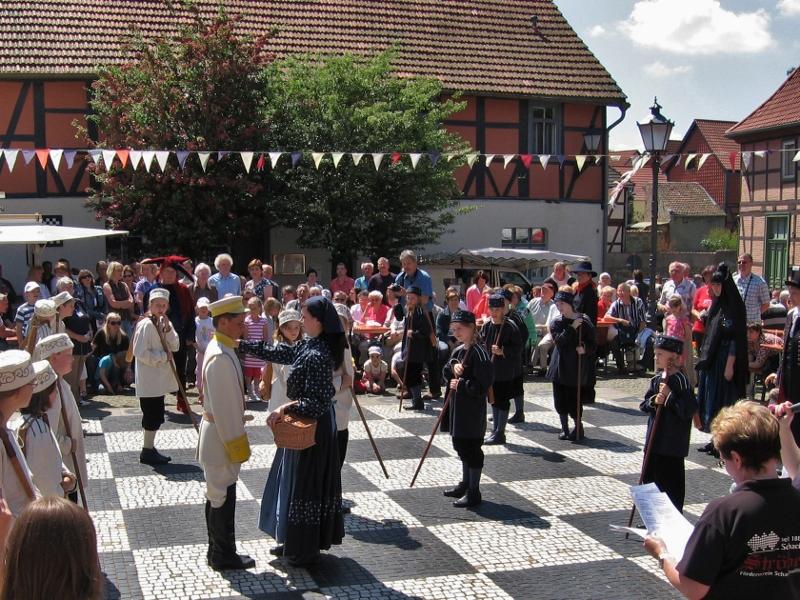
Chess is a centuries-old cultural tradition, which is lively practiced and also has been found in arts, literature, philosophy and science. The Chess Village Ströbeck in the city of Halberstadt (Saxony-Anhalt) is dedicated to this tradition in a unique way and with diverse characteristics: According to a legend, Ströbeckers play chess since 1011.
Facts & figures
Crucial date: all seasons
Inscription: 2016
Domains: social practices, rituals and festive events
Where to find: City of Halberstadt
Contact
City of Halberstadt
Mayor Andreas Henke
@email
www.schachdorf-stroebeck.de
It was only in the 19th century that they opened up to international rules. Until then and beyond, the villagers followed medieval rules when playing chess. The chess tradition in Ströbeck is passed on within families, in schools or in the Chess Club. Since 1823 chess is an obligatory subject at Ströbeck's primary school.
Since then regular student competitions take place to win boards and figures. Chess congresses and regional, national and international chess tournaments are held; the May tournament organized by the Chess Club since 1960, with 200 participants annually, is particularly well-known.
A specific Ströbeck attraction is "Lebendschach" (living chess), a game of chess with living figures, already introduced in 1688. Here an ensemble presents rehearsed and free chess matches, chess dances and recitations. In 2007 a tradition was revived, according to which a groom must play chess against the mayor. If he wins the match, he wins his bride, if he loses the match, he must pay a penalty to the municipality.
Chess and all related traditions play an important identity-shaping and community-building function for Ströbeckers. Proud winners of tournaments decorate their houses with chess symbols and even those citizens who do not actively play chess stumble across the tradition every day in a variety of ways.
The chess tradition in Ströbeck is passed on within families, in schools or in the Chess Club. In Ströbeck, chess also has an integrative function, since new citizens quickly become part of the chess community through the many-sided maintenance of the tradition.
